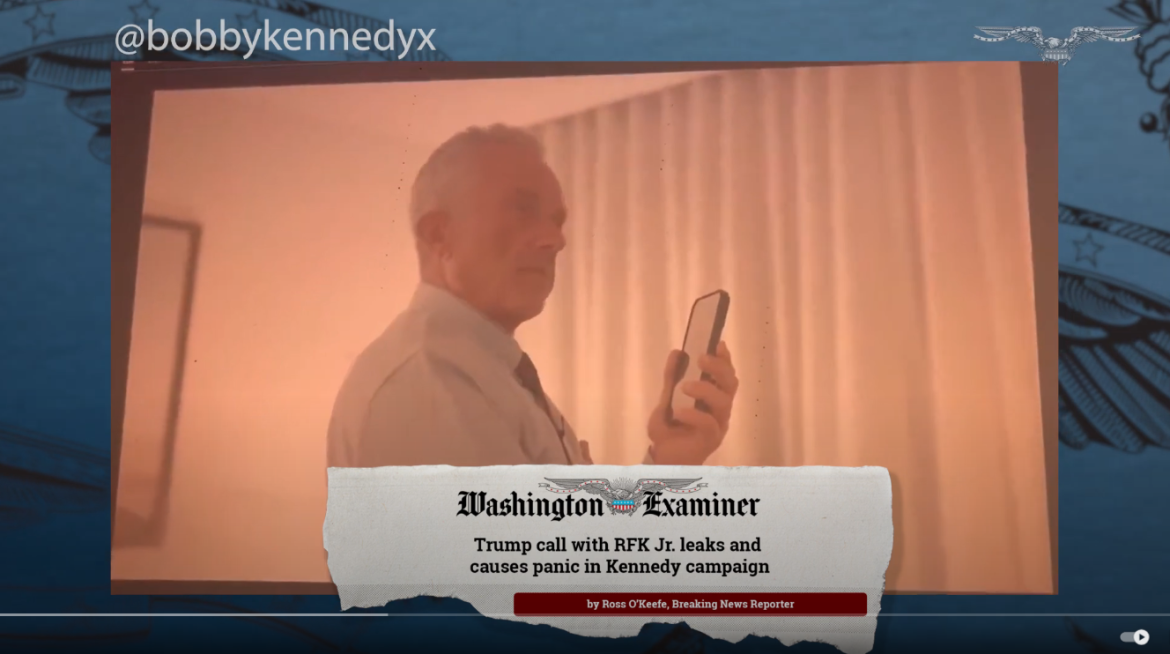Robert F. Kennedy Jr. has issued a public apology to former President Donald Trump after a video of their private phone call was leaked online. The incident has drawn significant attention, highlighting the sensitivity of private conversations between public figures.
The apology was posted on X, formerly known as Twitter, where Kennedy expressed his deep regret over the leak. He explained that the call had been recorded by an in-house videographer, and he was “mortified” to learn that the video had been posted without his consent. The leaked footage captured Trump speaking candidly about President Joe Biden and the recent assassination attempt on his life.
During the conversation, Trump mentioned that President Biden was “very nice” when he called to check on him following the attempt on his life. Trump also humorously described the sound of the bullet as resembling “the world’s largest mosquito,” providing a glimpse into his mindset during the harrowing experience.
The leak has sparked discussions about privacy and the security of communications among high-profile individuals. Kennedy’s apology underscores the importance of discretion and the potential consequences of unauthorized disclosures. This incident also sheds light on the complex relationships between political figures, even those who are often seen as adversaries.
Kennedy’s public apology aims to mitigate any damage caused by the leak and to reaffirm his respect for Trump and the confidentiality of their conversation. The swift response highlights the delicate nature of such interactions and the high stakes involved in maintaining trust and integrity in political discourse.
Biden Directs Secret Service to Protect RFK Jr. After Trump Assassination Attempt. In a proactive measure following the assassination attempt on former President Donald Trump, President Joe Biden has directed the Secret Service to extend protection to Robert F. Kennedy Jr. Homeland Security Secretary Alejandro Mayorkas confirmed that Biden’s directive for Kennedy’s protection was issued both prior to and following the recent events. This decision underscores the heightened security concerns and the administration’s commitment to safeguarding political figures amidst escalating threats. The move also reflects the government’s broader strategy to ensure the safety of high-profile individuals in a politically charged environment.



